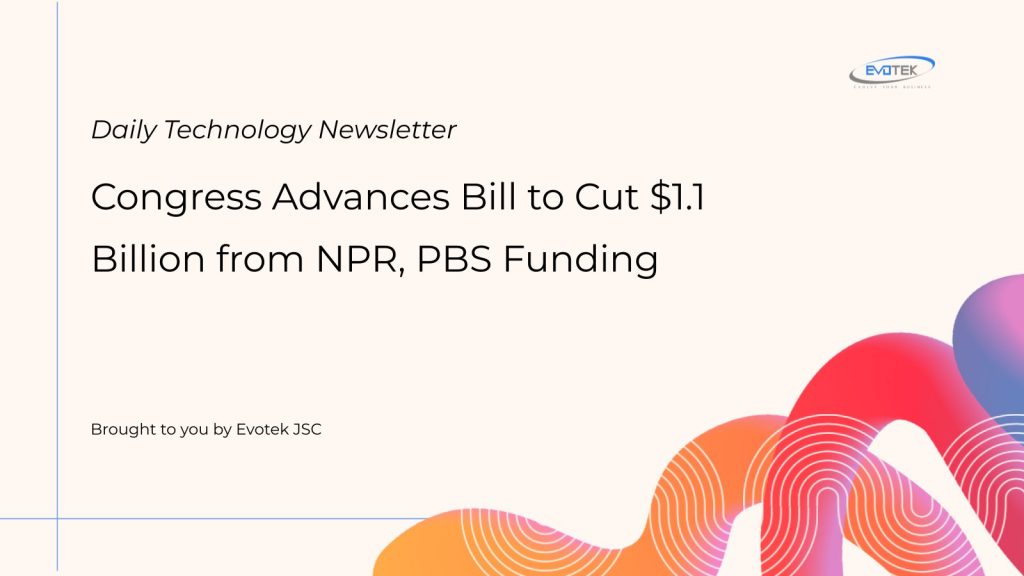The U.S. House of Representatives has approved a significant spending reduction bill, including a substantial $1.1 billion cut to the Corporation for Public Broadcasting (CPB). This action, which impacts federal funding for NPR and PBS, now sends the legislation to the President’s desk for signing.
On Thursday night, the Republican-controlled House voted 216-213 to pass the bill, which slashes a total of $9 billion in government spending. The $1.1 billion designated for the CPB represents the entirety of two years’ worth of federal allocations to National Public Radio (NPR) and the Public Broadcasting Service (PBS), key pillars of public broadcasting.
The congressional move immediately drew strong criticism from public media advocates. Katherine Maher, President and CEO of NPR, condemned the vote as an “unwarranted dismantling of beloved local civic institutions” that disregards public sentiment. Maher emphasized widespread support for federal funding, stating, “Two-thirds of Americans support federal funding for public media, and believe that it is a good value for taxpayer dollars.” She highlighted the critical role public media plays in daily life, from news and educational programming to local music traditions.
This House vote follows similar action in the Senate, which on Wednesday voted 51-48 to approve the spending cuts. Beyond public broadcasting, the bill includes an $8 billion reduction in foreign aid, affecting the U.S. Agency for International Development and programs for global health and refugee assistance. Notably, the Emergency Plan for AIDS Relief (PEPFAR) was spared a $400 million cut following objections from some Republican senators.
The White House initially requested this budget package, which has advanced through both chambers with exclusively Republican votes. While most Democrats were unified in their opposition, a few Republicans in both the House and Senate voiced concerns and voted against the measure, including Representatives Brian Fitzpatrick (Pennsylvania) and Michael Turner (Ohio), and Senators Susan Collins (Maine) and Lisa Murkowski (Alaska).
The Corporation for Public Broadcasting is responsible for distributing the majority of its funds to over 1,500 public television and radio stations nationwide, with the remainder allocated directly to NPR and PBS. The White House has previously criticized the public media system as biased and unnecessary, even attempting to terminate board members of the CPB earlier this year.
While NPR and PBS are expected to absorb these federal funding cuts due to their relatively low reliance on taxpayer dollars, the impact on local stations could be severe. Many smaller public stations receive as much as half of their overall budgets from the CPB. These cuts are projected to force significant programming and headcount reductions at the local level as early as this fall.
“Supporters of defunding are fixated on NPR and PBS, but in reality, the cuts will be felt where these services are needed most,” Maher reiterated. She pointed out that stations in regions like West Virginia and those serving tribal nations depend heavily on federal funding, providing vital local programming such as coverage of town councils, statehouse affairs, local elections, and community music that might otherwise be unavailable.

 日本語
日本語 한국어
한국어 Tiếng Việt
Tiếng Việt 简体中文
简体中文